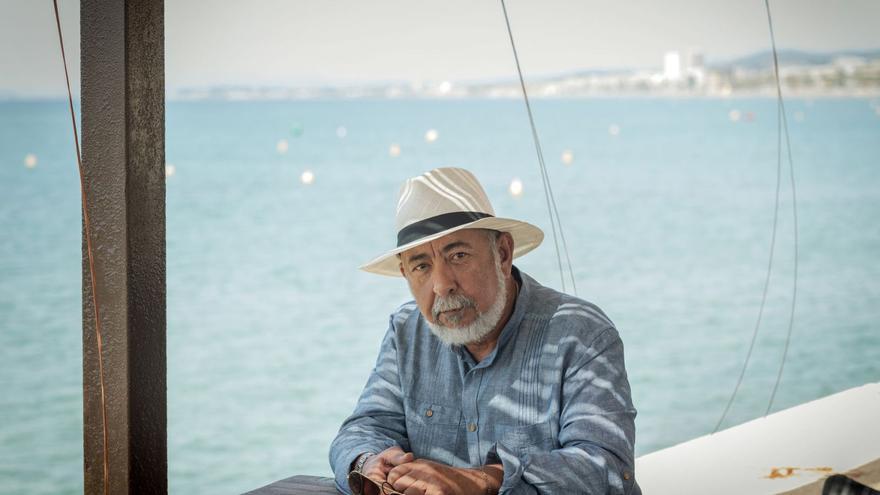
Author Leonardo Padura will put the finishing touch to the ninth edition of the Tenerife Noir Festival today at 12:00 at the Palacio de Carta presenting his novel Decent People. Subsequently, he will receive the Negra y Criminal Award for his career.
What does this recognition from the Tenerife Noir Festival for your entire career mean for you, as an acclaimed author?
[–>
It is certainly a gratifying experience. Any honorary recognition implies that a group of people, an institution, acknowledges your work and values it. So, I am very grateful and will return from Tenerife with a real borsalino.
Decent People (Tusquets Editores, 2022) has shown that Mario Conde still has loose ends to tie up…
[–>
I hope he continues to do so for a long time. Conde is my most used way of observing and reflecting Cuban reality, the way to chronicle my vital time and that of my entire generation, and each of his investigations has been, and hopefully will continue to be, a way to delve into that deep and sometimes stormy reality of my country.
After such an extensive body of work, where do you seek the challenge to not disappoint your readers?
You just said it: in the challenge. I challenge myself to always strive to produce the best literature that I am capable of at any given moment. That has always been my principle, and it will continue to be so. Moreover, I believe that literature is a very gratifying way to delve into historical, social, or economic conflicts from the perspective of individuals, of the citizens, and that civic responsibility encourages me to do so, and increasingly, to do so in the best way possible.
Conde remains true to his ethics and morals throughout each delivery, something that can only happen in fiction. Don’t you think?
No, I don’t think so. We all evolve throughout life. Or devolve. And in many ways, Conde reflects my own evolution. Physically, for example, the changes of age, old age. Also my perceptions of reality, which may be more pessimistic, more disillusioned. But the essence of the character has not changed because I believe that mine has not changed either. Or at least that’s what I try to do. To continue being a decent and consistent person even in an increasingly indecent and intangible world.
What about Pepe Carvallo, Sam Spade, or Philip Marlowe in Mario Conde?
A lot, because we all draw from our mentors, and those characters are iconic for me and for Conde. Like them, he seeks truths, reflects realities, opines about the world, but, of course, always within the context of his belonging to a reality as unique as the Cuban one. And being Cuban perhaps makes him more ironic than cynical, more sensitive than tough, more addicted to rum than whisky.
The villains in your works are not usually poor souls pushed by life into making bad decisions, but rather ambassadors, ministers… Perhaps that’s why they often die at the beginning of the novel. Is there a sense of poetic justice in this?
Poetic and historical justice. I detest those characters who, from power, are dedicated to prosper, to crush others, to deceive us with their slogans, and turning them into villains in my novels is my small artistic revenge, since in reality, I can’t do anything against those bastards… who flourish not only in Cuba but all over the world, I believe increasingly so.
I know which question you dislike being asked, and I think I know which questions you do. What books, movies, music describe your personality, or even influence your work?
Oh, that is a question that would require pages and days to answer. I am a culture addict and through it, I usually see myself as a human being, because true art is always a look or reflection on the human condition. For example, I just finished reading The Lost Light, a novel by a Georgian writer living in Germany, Nino Haratischwili, and the drama of her characters deeply moved me because it speaks of them and also speaks of me. Or a few months ago, I rewatched the film We All Loved Each Other So Much, by Ettore Scola, and was moved by that story of friendships and betrayals. And so on, ad infinitum… on a reed?
Do writers pen for posterity? How would you like to be remembered?
I write out of necessity. Posterity is a question mark. Did you know that Amazon has limited to three books per day the writings with artificial intelligence that an author can launch in the market? Three per day!!! Better not to think about posterity.
Do you think the narrative space, the island, defines Padura’s work?
Certainly. The geographical reality of insularity affects the perception of all reality, the formation of a culture, the manifestations of a sensitivity. I am a complete islander, and as an islander, I have that visceral need to look out into the world and understand it, to break that condition of “the cursed circumstance of water everywhere” that Virgilio Piñera talked about. I am myself and my circumstance as well. And that Cuban, insular reality is present in all my personality and, of course, in my literary and cinematographic creation. I belong to the island and, within the island, to Havana, within Havana, to the Mantilla neighborhood, and within the neighborhood to the house where I was born and live. There I am, with my mother, my wife, my books, and my obsessions… insular.
















